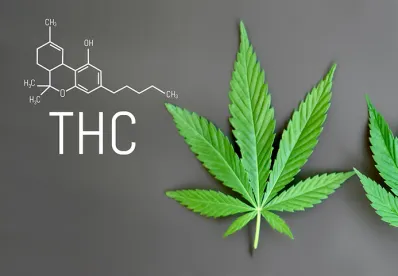The New Jersey Supreme Court ruled that an employer and its workers’ compensation carrier must reimburse an injured worker for his medical marijuana expenses. Hager v. M&K Construction, 2021 N.J. LEXIS 332 (N.J. April 13, 2021).
Hager suffered a back injury in a work-related accident in 2001. He underwent surgeries and used opioid medications for chronic pain. In 2016, Hager enrolled in New Jersey’s medical marijuana program and began using medical marijuana both for pain treatment and to overcome an opioid addiction. His marijuana prescription cost him more than $600 per month. A workers’ compensation court ordered the employer to reimburse Hager for the ongoing costs of his medical marijuana costs. An appellate court affirmed that order.
The employer made several arguments as to why it should not be required to pay for the employee’s medical marijuana expenses. All were rejected by the New Jersey Supreme Court.
First, the court ruled that the federal Controlled Substances Act (CSA) did not preempt the state’s medical marijuana law, nor would it subject the employer to potential federal criminal liability for aiding-and-abetting. The CSA is the federal law that makes marijuana illegal. Despite its illegal status, the court noted that the U.S. Department of Justice has deprioritized marijuana prosecutions and that Congress has prohibited the DOJ from using allocated funds to prevent states from implementing their medical marijuana laws. The court therefore concluded that the medical marijuana law did not create an obstacle to the accomplishment of congressional objectives and therefore there was no preemption. In addition, the court was unpersuaded by the employer’s argument that it would be “aiding and abetting” a crime by assisting in Hager’s possession of marijuana which is illegal under the CSA. Observing that the employer “has gone to great pains” to oppose Hager’s marijuana use – as evidenced by the litigation – reimbursing him for medical marijuana expenses was not aiding his possession of marijuana. Rather, it was compelled by a court order. Given the employer’s lack of intent, there was no aiding and abetting of a crime.
Second, the court rejected the employer’s argument that the medical marijuana was not a “reasonable or necessary” treatment under the New Jersey Workers’ Compensation Act. The court held that medical marijuana may be found – subject to competent medical testimony – to constitute reasonable and necessary care under the New Jersey workers’ compensation scheme. Hager presented medical testimony that he remained in chronic pain and that ongoing treatment was necessary. Medical marijuana was deemed to be appropriate medical treatment as it provided pain relief and treated Hager’s addiction to opioids.
Finally, the court rejected the employer’s argument that it fit within an exception in the state’s medical marijuana law. Specifically, the medical marijuana law provides that reimbursement for medical marijuana costs is not required of “a government medical assistance program or private health insurer.” The employer claimed to be exempt under this provision. However, the court held that the legislature did not intend for workers’ compensation insurers to be treated as private health insurers or government medical assistance programs. The legislature could have explicitly exempted workers’ compensation carriers but did not do so. Therefore, there was no exemption from the reimbursement obligation.




 />i
/>i
